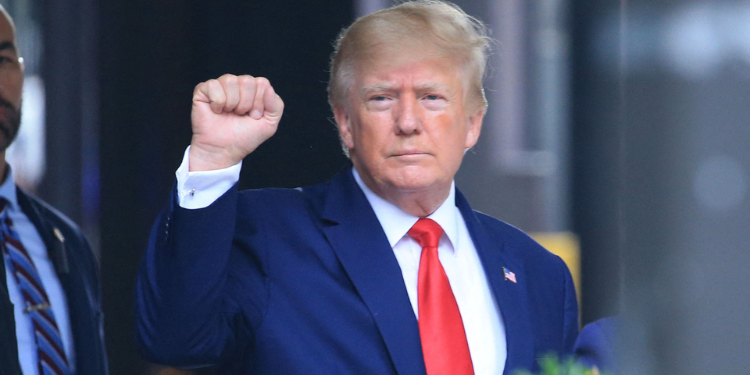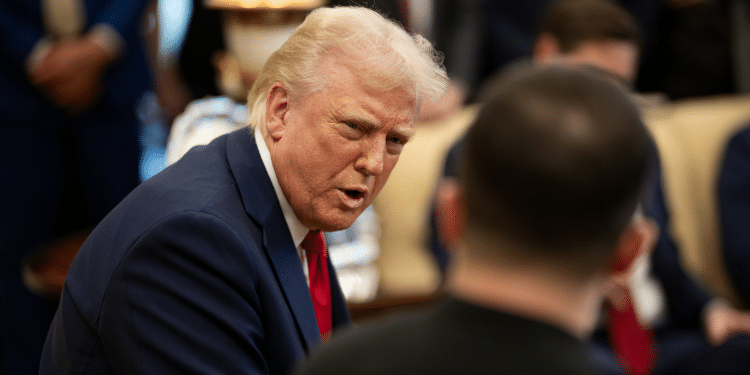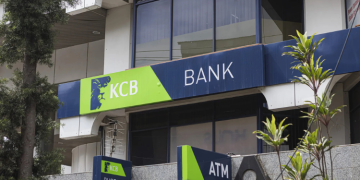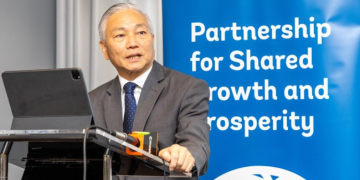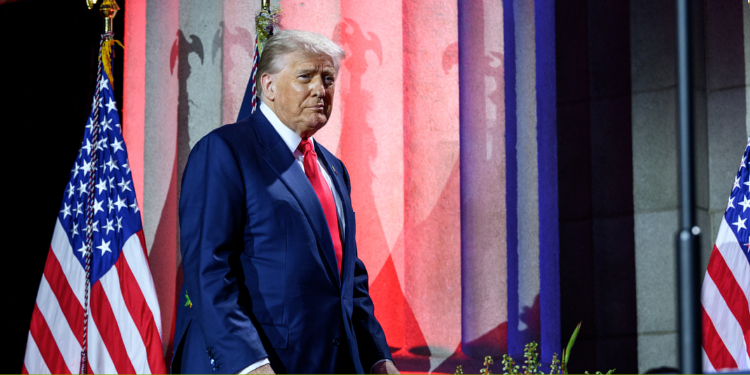United States (US) President Donald Trump’s administration, through the Treasury’s Office of Foreign Assets Control (OFAC), has intensified its crackdown on Iran’s petroleum and petrochemical exports.
In a statement on October 9, the Treasury Department sanctioned more than 50 individuals, companies, and vessels accused of facilitating the sale and shipment of Iranian oil and liquefied petroleum gas (LPG).
“The Treasury Department is degrading Iran’s cash flow by dismantling key elements of Iran’s energy export machine,” said Secretary of the Treasury Scott Bessent.
“Under President Trump, this administration is disrupting the regime’s ability to fund terrorist groups that threaten the United States.”
This is the fourth round of sanctions where the Trump Administration has targeted China-based refineries that continue to purchase Iranian oil.
According to OFAC, the sanctioned network has enabled billions of dollars’ worth of exports, generating critical revenue for the Iranian regime and its support for terrorist organizations.
The new sanctions target entities across the United Arab Emirates, Hong Kong, Panama, and the Marshall Islands — including firms like Markan White Trading Crude Oil Abroad Co. L.L.C., Slogal Energy DMCC, and Amita Petrochemical Trading L.L.C. — accused of disguising and transporting Iranian petroleum to markets in Asia and beyond.
Also Read: Fresh Details About Trump Offering Ukraine Tomahawk Missiles
Trump Govt Targets Iran’s Oil and Gas Network with New Sanctions
Treasury Secretary Scott Bessent said the move aims to “degrade Iran’s cash flow by dismantling key elements of its energy export machine,” underscoring Washington’s broader strategy of economic pressure against Tehran’s global oil trade.
The Treasury’s Office of Foreign Assets Control (OFAC) has expanded sanctions against Iran’s petroleum network, targeting China-based refineries and terminals, shipping companies, and dozens of vessels involved in transporting Iranian crude oil and liquefied petroleum gas (LPG).
The move comes amid efforts to disrupt Iran’s petroleum exports that provide critical revenue to the regime and its support for groups the U.S. classifies as terrorist organizations. Among those sanctioned are Shandong Jincheng Petrochemical Group, an independent “teapot” refinery, and Rizhao Shihua Crude Oil Terminal, both of which purchased millions of barrels of Iranian crude.
Also Read: Trump’s Government Says Ukraine Is Not Winning War Against Russia
Ships To Be Affected
OFAC’s sanctions also target a global web of shipping companies and vessels — including firms in the Marshall Islands, India, Panama, Singapore, and Hong Kong — that facilitated transfers from Iran’s so-called “shadow fleet,” a network of tankers and offloading operations designed to disguise the origin of petroleum cargoes.
Ships such as Pamir, Sapphire Gas, Nepta, Gas Zeina, Madestar, Sullana, Purdue Stellar, Siren II, and Voy are all included in the latest designations.
Individuals linked to these firms, including Varun Pula, Soniya Shrestha, and Iyappan Raja, were also sanctioned for acting on behalf of or managing these vessels.
The sanctions block all property and interests in property of the designated persons in the US and restrict U.S. persons from engaging in transactions with them, unless authorized by OFAC. Violating these sanctions can carry both civil and criminal penalties.
Treasury officials emphasized that these measures aim to safeguard the U.S. and international financial system by dismantling networks that enable Iran to profit from oil exports while circumventing existing sanctions.
Follow our WhatsApp Channel and X Account for real-time news updates.
